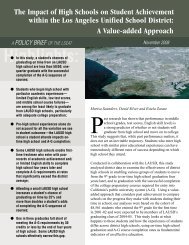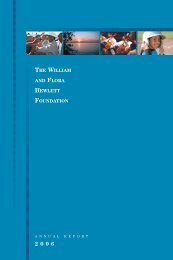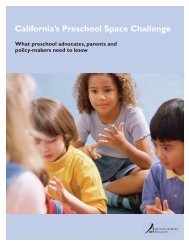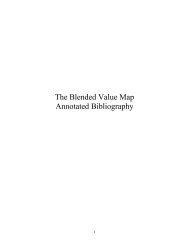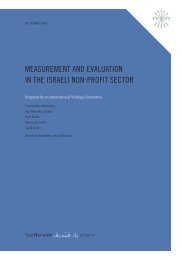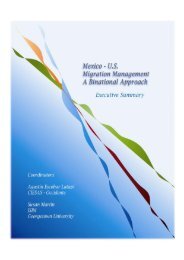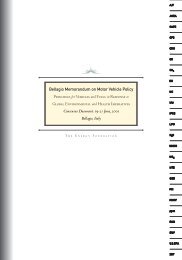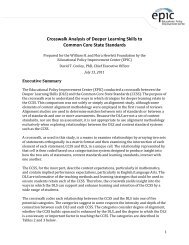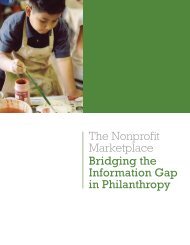EDUCATION FOR LIFE AND WORK - Hewlett Foundation
EDUCATION FOR LIFE AND WORK - Hewlett Foundation
EDUCATION FOR LIFE AND WORK - Hewlett Foundation
Create successful ePaper yourself
Turn your PDF publications into a flip-book with our unique Google optimized e-Paper software.
Education for Life and Work: Developing Transferable Knowledge and Skills in the 21st Century<br />
2 <strong>EDUCATION</strong> <strong>FOR</strong> <strong>LIFE</strong> <strong>AND</strong> <strong>WORK</strong><br />
persistence, and learning to learn that can be demonstrated within core<br />
academic content areas and that are important to success in education,<br />
work, and other areas of adult responsibility. The labels are also sometimes<br />
used to include other important capacities—such as creativity,<br />
innovation, and ethics—that are important to later success and may<br />
also be developed in formal or informal learning environments.<br />
• Describe how these skills relate to each other and to more traditional<br />
academic skills and content in the key disciplines of reading, mathematics,<br />
and science. In particular, consider these skills in the context of the<br />
work of the National Governors Association and the Council of Chief<br />
State School Officers in specifying Common Core State Standards for<br />
English language arts and mathematics, and the work of the NRC in<br />
specifying A Framework for K-12 Science Education: Practices, Crosscutting<br />
Concepts, and Core Ideas (hereafter referred to as the NRC<br />
science framework).<br />
• Summarize the findings of the research that investigates the importance<br />
of such skills to success in education, work, and other areas of adult<br />
responsibility and that demonstrates the importance of developing these<br />
skills in K-16 education.<br />
• Summarize what is known—and what research is needed—about how<br />
these skills can be learned, taught, and assessed. This summary should<br />
include both the cognitive foundations of these skills in learning theory<br />
and research about effective approaches to teaching and learning these<br />
skills, including approaches using digital media.<br />
• Identify features of educational interventions that research suggests<br />
could be used as indicators that an intervention is likely to develop the<br />
key skills in a substantial and meaningful way. In particular, for learning<br />
in formal school-based environments, identify features related to<br />
learning these skills in educational interventions in (a) teacher professional<br />
development, (b) curriculum, and (c) assessment. For learning<br />
in informal environments, identify features related to learning these<br />
skills in educational interventions in (d) after-school and out-of-school<br />
programs and (e) exhibits, museums, and other informal learning centers.<br />
For learning in both formal and informal environments, identify<br />
features related to learning these skills in education interventions in (f)<br />
digital media.<br />
In approaching this charge, the committee drew on a large research<br />
base in cognitive, developmental, educational, organizational, and social<br />
psychology and economics for purposes of clarifying and organizing concepts<br />
and terms. However, we do not claim to provide precise, scientifically<br />
credible definitions of all the various terms that have come to populate<br />
this arena of concern and debate. This is due partly to the time constraints<br />
of the project and partly to the lack of definitive research on the range of<br />
skills and behaviors that have come to fall under the headings of “deeper<br />
learning” and “21st century skills.” That said, the committee took initial<br />
Copyright © National Academy of Sciences. All rights reserved.





